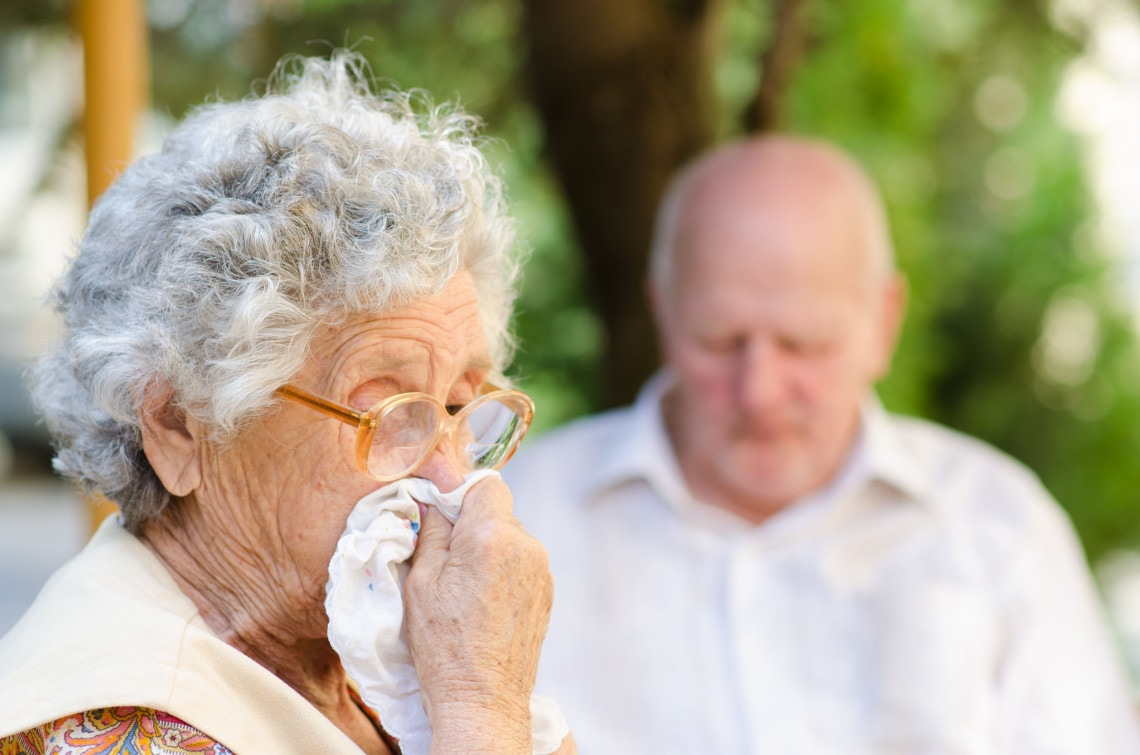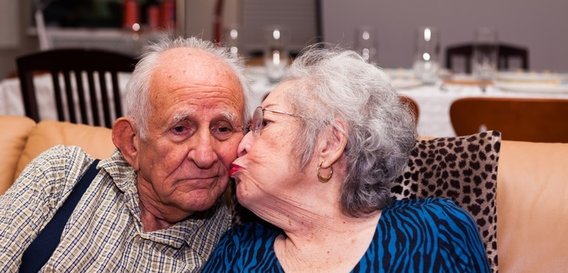|
Staying away from work or crowded places while sick is important to prevent spreading the flu to others. But that's not an option for seniors living in care centers or assisted living communities making senior flu prevention that much harder at these communities. When you congregate large numbers of people in close quarters, transmission is a lot easier. However, care centers usually require all employees to be vaccinated, which is the single most effective way to guard against getting the flu. And, it's important to get a flu shot every year, because the virus changes slightly from year to year. Getting a flu shot one year and not the next, will not protect someone from that year's particular strain. Older adults should make every reasonable effort to get vaccinated early in flu season, but don't do it too early in the season, because occasionally the immunity will wear off before flu season ends, especially if the season lasts into March or April. While vaccination is the most important senior flu prevention, it's only 70 to 90 percent effective, so some people who receive the vaccination will still get the flu. So, for at-risk populations, it's especially important that everyone around them also gets vaccinated. That includes everyone involved in taking care of the elderly. And like skilled nursing facilities, some hospitals, require all employees to be vaccinated. During flu season, practicing good hygiene can help people avoid catching or spreading the flu. Wash hands frequently, especially after touching door knobs and stair rails in public places. Always cover nose and mouth when coughing or sneezing, and immediately wash hands afterward. And, of course, stay away from people who are sick. People taking care of the elderly especially need to follow this type of common sense senior flu prevention. Take care this flu season. If you would like more information about the flu or would want to talk to a healthcare professional about protecting your health. Give us a call today, ask to talk to our Education Specialist, Gretchen and we can get you connected. 952.888.7751
2 Comments
If you have ever surfed websites of senior housing options, I bet you have frequently run into the term “person-centered care” which we owe to Dr. Thomas Kitwood, a British physician who focused on the importance of remembering that a person with dementia is first and foremost a PERSON with particular needs, challenges, strengths and preferences.
Cannot expect persons with dementia to think like we do It is also due to Dr. Kitwood’s brilliant work that nurses are no longer trained to try to orient persons with dementia to reality, e.g., “No, no, Mrs. Jones, it’s 2017 now – actually your mother is dead, and the farm has been sold!” Thank goodness for Tom Kitwood! He helped us understand that we cannot expect persons with dementia to think like we do. As I’ve heard nursing home operator and author Megan Carnarius say, “We need to cross to their side of the street.” People with dementia simply cannot come over to ours. We need to give them responses that make sense with the way in which they understand the world. Relationship-based care Dementia expert Elion Caspi encourages us to also think about dementia care as “relationship-based care.” If we do not maintain relationship and genuine connection with persons with dementia, trust wears thin. As a result, it becomes challenging for persons with dementia to accept the care they need. Lost in the grief It is completely understandable that care partners are exhausted. They often get caught up in the grief of losing the precise relationship they had with their loved one before dementia was part of the picture. All too often, people become angry and bitter, even to the point of saying things such as “Alzheimer’s is worse than death.” That is a direct quote from the despondent husband of a wonderfully clever woman; let’s call her “Pam,” with whom I worked for some years. What a heartbreaking pronouncement from her husband! At this point, Pam still loved to share opinions and insight, sing Broadway tunes, reminisce, walk, dance, and hold hands. A person is NOT their Alzheimer's disease any more than a person who has cancer is their cancer! Those of us who have had family members with dementia or other progressive diseases do understand from whence that sentiment arises. However, it is ultimately not a helpful one. Nor is it accurate. It implies that we might as well give up on a person who is still very much alive. This could not be further from the truth. A person is NOT their Alzheimer’s disease any more than a person who has cancer IS their cancer. The person, an intact spiritual being, is still there, though many of their needs have changed dramatically. We do our loved ones a disservice if we refuse to rise to the occasion of their increased needs. Maintain connections along the way There are many gifts to be gained by accepting where the person is at, through each and every phase of their dementia experience. There is connection to maintain all along the way. How we connect will vary with different types and different phases of dementia, but in general, smiling, eye contact, gentle touch and approach, curiosity, acceptance of where the person is, conversation about things that are meaningful to the person, sharing laughter, singing, enjoying simple pleasures, giving compliments, promoting calm, validating the person’s feelings, doing things just the way the person likes, making things easier for them, reminiscing, having fun together, sparking creativity, enjoying humor….well, the list of what can be done to maintain a healthy, nurturing relationship goes on and on. Responding to the world from an earlier developmental time In short, we can treat the person like a PERSON, and remember that even though this person is losing skills, even though this person may enjoy and indeed benefit from things that children like, this person is still an adult who is simply responding to the world from an earlier developmental time. This person still has strengths and skills we must actively encourage and appreciate in order for them to have a meaningful life. Language is powerful Did you notice that I’ve been using the term “care partner” rather than “caregiver?” Language is powerful. When the relationship between a person with dementia and someone caring for them is viewed more as a partnership, what’s implied is that both persons have something to give. Think about it…What might persons with dementia still have to offer us, their care partners? Some bonds remain unbreakable They can give valuable input as to what they like and what they don’t like. They can lend us wisdom from past experience; they can share memories of olden days, with humor and perspective. They can inspire us with their courage and resilience. They can give us love. In this process, we may be surprised at how flexible our own capacity to love may become. Even in the late stage of their dementia, our loved one may remind us how some bonds remain unbreakable. Caring for persons with dementia may give us more patience and more appreciation for wordless communication and for life than we’ve ever known. We are in this together Thinking about our relationship as a partnership will help make us more open to a person’s participation and input. We just might respect, value and love this person all the more. We are not the same as this person, and we have each been impacted by dementia and changed forever in vastly different ways, but surely we are in this together. --Marysue Moses, Ebenezer Dementia Care Program Coordinator |
Director of Community Relations
Hello friends, my name is Kate and I'd love to share with you ALL of the wonderful things happening at Martin Luther Campus. Be sure to check our Blog, Lifestyle page and Facebook page often to stay updated on the happenings at our community! Archives
November 2023
Categories |
|
telephone |
|
DIRECTIONSimap
|
© 2021 Fairview Health Services
|



 RSS Feed
RSS Feed

